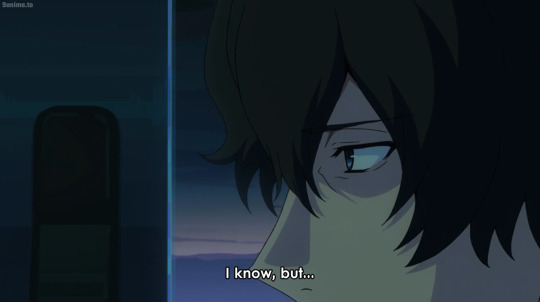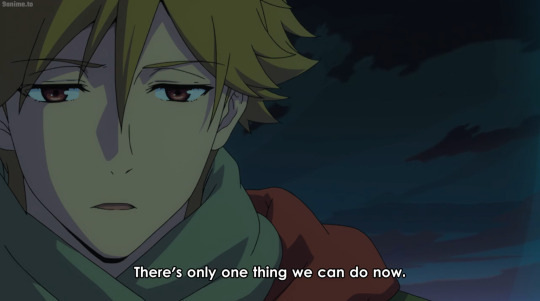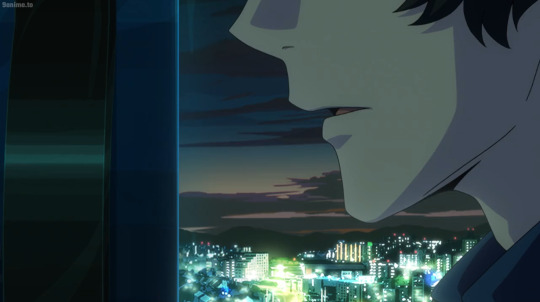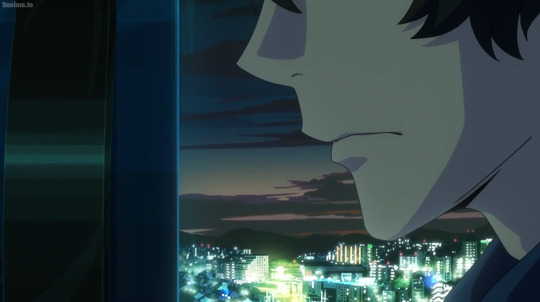#and rei's. not necessarily outspoken but
Text
thank you PA works, very cool! i will now be killing myself.




#the reversal of the way they normally show their emotions is making me insane#kazuki's acting more apathetic and resigned in an attempt to make letting miri go hurt less#and rei's. not necessarily outspoken but#he's resisting this uncaring facade kazuki's trying to put on#goddddd sorry.#buddy daddies spoilers#buddy daddies#textpost#img#ari posting
55 notes
·
View notes
Text
The Professionals
Dungeons and Dragons has enjoyed a surge in popularity over the last few years, and one of the reasons that we can point to for its increased market appeal is the internet stream programme Critical Role. With Geek and Sundry as a springboard, Critical Role is now its own entity, producing livestreams of tabletop roleplay for the entertainment of the masses.
While its online presence and player roster of professional voice actors gained the attention of the general public, that was not what made Critical Role as popular as it has turned out to be. Critical Role is an innovative take on what has up until 5e been a far less story-driven tabletop system than, for instance, the World of Darkness. Dungeons and Dragons has been largely known for dungeon crawls and tactical combat; a series of numbers designed to create a tactical team. While story is necessary to a point, character interaction was less the focus. The fifth edition and Critical Role both took great pains to change that. Focus shifted away from the numbers as the sole arbiter of storytelling and success; the variety of classes and focus on background enabled a richer story than what could be created with a series of dungeon crawls. However, while 5e provided the framework, it was Matt Mercer's storytelling, and that of Liam O'Brien, Laura Bailey, Travis Willingham, Taliesin Jaffe, Marisha Rey, Sam Riegel and Ashley Johnson that turned a collection of stats and encounters into a rich, compelling story with relatable characters and significant emotional investment.
The more story-focused approach to the game inspired a lot of people to try Dungeons and Dragons who might not necessarily have considered it in the days of THAC0. A significant number of people who might not identify with a series of numbers and a spell list came flocking, eager to try creating their own tale of adventure in whatever Dungeons and Dragons world they could find or devise. They sought to capture the magic they saw on the stream every Thursday, and they all succeeded in their own ways - which is how it should be, as no person will ever tell 100% the same story. Wizards of the Coast responded by giving players more toys to throw into their personal sandboxes, and while those who were more invested in the number-crunching elements of D&D tend to complain, their number is more than made up for in terms of sales by a tide of fans looking to create rather than add up.
Unfortunately, Critical Role had one more effect that no one expected: it created the concept of the 'professional dungeon master' - someone who makes a living, or at least part of a living, at the art of running a tabletop roleplaying game. While not a problem in and of itself, the concept of being a professional DM has had implications for roleplaying as a hobby far beyond what the good people at Geek and Sundry might have expected at the first.
The quieter issue with DMing as a profession is unfair comparisons, as a lot of players and DMs compare themselves to the people they see on the screen every week and get depressed over falling short. It's easy to forget that the players aren't professional players but professional actors, more likely to be able to do credible accents, stay in character through nearly anything people can throw at them, and generally use their training in improv to enhance their own experiences in the game and make it look seamless. It's just as easy to forget that they are still just people playing a game; that it’s the players’ experience both in their day-to-day careers and their hobbies that makes their story beats and dialogue smooth enough to seem pre-planned, that everyone brings their own experience to the table, and that while most players aren't coming to the table with a career history full of voice acting jobs, everyone will bring something to the table that no one else can. When watching Critical Role and other shows of its ilk, it's important for any player or DM to remember that every story is unique, every gaming experience is likewise unique, and that it always looks different from the outside in any case. So long as everyone at any specific table is having fun, comparison with other DMs and players shouldn't matter, even if those DMs and players are making money out of it.
The other more vocal issue is the pressure a 'professional' D&D player or DM takes from outside sources. Like most hobbies and fandoms, D&D attracts a wide variety of passionate people, and passion breeds strong opinions. That's generally a good thing, but as with everything else, the internet allows strong opinions to turn to vitriol spewed at anyone who does not share that opinion, or acts against it in some way. A 'professional' D&D player and DM has their every action scrutinised, and this whole fandom of passionate, enthusiastic people are granted access to those players and that DM by the grace of the internet. The easy access to the creators of our favourite media is at once the boon and bane of the internet; it allows us to praise our favourites, but it also allows the outspoken and vitriolic to attack anyone who does not conform to their wishes and standards. Thus does the professional DM take a variety of abuse - their every decision at the table criticised, their homebrews and house-rules lambasted, their story ideas panned. The aggressive tone these judgement calls take become yet more work for people who, despite 'being on TV', so to speak, are only in it to play a game and have some fun, and once upon a time thought it would be a neat idea to share their fun with others.
At the end of the day, it's important for players and fans to remember that there is no such thing as a 'professional' D&D player. Anyone can set up cameras at their table and stream their session, and they can even become affiliated and make money off it, but that does not make them 'professionals'. They're not following a studio's whims. They're not in it for ratings. They're not machines producing stories by rote. They're human beings who are trying to have fun and tell a story with friends. They will make mistakes. They will forget things. Their characters will live and die at the whims of the role of a twenty-sided die. It's best not to forget that they're as human, as attached to their characters, as invested in the world they're making, as any other player.
It's also best not to forget that it's their game, and that its airing on the internet does not give anyone any rights to dictate the course their game will take. So, keeping all that in mind, remember that just because they’re accessible on a social media platform doesn’t give you the right to come to their virtual back porch and complain. If their game makes you love your game less, maybe you need to look at your own campaign in a kinder light.
4 notes
·
View notes
Text
MY LAST JEDI PREDICTIONS:
I’m seeing the movie tonight, and I think it will mark the end of an era. For the past two years I’ve enjoyed people’s wild theories about the backstories of certain characters and what’s going to happen when so-in-so meets somebody else.
It’s all great fun because we’re expecting a big twist. TFA did a really great job telling us visually that it’s following the format of the original trilogy, and that means there’s gonna be a game change reveal in this next one.
I’m also a little sad because we’re about to be loosing all that. A part of the fun of reading all the fan theories is how ridiculous some of them seem to be, but recognizing on some level that the possibility is still there. So you’re willing to entertain all these wild, wonderful, ridiculous ideas.
I don’t think every dangling plot-line will be resolved in TLJ, but I don’t think we’ll leave the theater with the same level of speculative fervor as when we went into it. I’m also sure many of us fan-theorists will leave the theater feeling a little stupid we didn’t see the twist coming all along.
As I haven’t been quite outspoken about my own fan theories, I could save face. I could keep them to myself for another couple of hours, until I watch the movie and all is hypothetically revealed...but where’s the fun in that?
1) One thing that really bugs me is that people assume Rey is going to be trained by Luke. Nothing in the story itself suggests that. In the story, Rey is supposed to be trying to convince Luke go back to his sister and fight the good fight. It also assumes Rey needs force-mastery training at all, which is another thing that isn’t suggested by the first movie. This doesn’t mean it won’t happen, but I don’t think the learning aspect itself will be as important as we think it will.
2) The movie’s going to make us root for Kylo Ren. Or at least make us see things from his perspective. There’s no denying the first movie made the Knight Formerly Known as Ben Solo a bit of a psychopathic wuss. To me though, Adam Driver’s acting kind of suggests that there’s more to him than an anti-Anakin Skywalker. That he’s kind of got his own agenda underneath the surface. I don’t think he’s a good guy by any means, but he won’t seem as insane by the end of it.
3) Rey is not related to anybody important. I mean, when you think about it, Anakin wasn’t related to anybody important but he’s still the most important character in the franchise. I think they’re gonna invent some new world mechanics for her to operate with. I would like her parents to have been Luke’s students, but I don’t quite see them going there at this point.
4) We won’t see nearly enough of the side characters. I don’t have an explanation for this one, I know the movie is going to be, like, 2.5 hours...but I just got a feeling most of that is going to be main-character centric. I personally would love a whole sub-plot surrounding Phasma, but my hopes aren’t particularly high.
5) Luke will be the bad guy.
I don’t mean he will be evil, necessarily, but I think it’s pretty obvious they’ve taken him to a really dark place to make him act so out of character. It’s established in the original trilogy that Luke is telepathically connected not only with Leia but also Han. In The Empire Strikes Back, he knows when they are going to be threatened BEFORE IT HAPPENS!! So not only did he abandon his cause, he also abandoned his family and WATCHED as his brother died. Even if some pretty horrible or shameful stuff happened to him/because of him, that’s a pretty horrendous thing to do.
Bonus: My favorite fan theory is the one that says that Snoke is actually an incarnation of Darth Plagus: The guy who could make people immortal and was killed by his apprentice. I think it fits stupendously and I’d love it if they took a delightful element from the prequels like that and explored it a bit more. It would also be a cool way to make the whole saga come full circle. However, I’m pretty sure its been debunked by Mr Pablo Hidalgo at some point (Killjoy!)
2 notes
·
View notes